Tiger Mother has become the symbol of Chinese mothers since Amy Chua, a law professor, published her book BATTLE HYMN OF THE TIGER MOTHER in 2011. The title has been used as a neologism to describe a tough, disciplinarian mother, most often Chinese mothers. However, here in Southern California, several hundreds of people gathered on June 11 to memorize K. Y. Tai, a mother of three whose name has been used to name a major office building at South Coast Chinese Cultural Center.
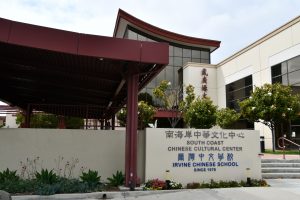
This is a new version of the Tiger Mother, a mother who raised her three children when her husband left her when the children were still very young. All the three children, who were born in Taiwan, later immigrated to the United States, and luckily, all the three took Southern California as their second hometown.
Tai raised and educated her children, and her son, David Sun, co-founded Kingston Technology. When he learned in 2003 that Irvine Chinese School was seeking funding to build a permanent school campus, David decided to donate money to build a major building. David did so to honor his mother, Kuan-Yuan Tai, and when the building was completed in 2005, it was named as the Kuan-Yuan Tai Educational Building to house both the Irvine Chinese School and South Coast Chinese Cultural Center.
A grand ceremony was held on June 11 to mark the 18th anniversary of the K. Y. Tai Educational Building and one of the major events was to launch the book, THE STORY OF KUAN-YUAN TAI EDUCATIONAL BUILDING.
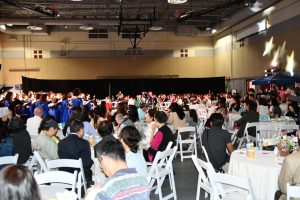
The book is written by Esther Hsian in Chinese based on the memories of Diana Kong, Tai’s daughter. The book was translated into English by Diana Sun and Illustrated by Siwei Liu.
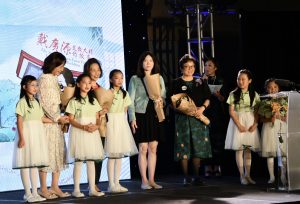
Besides the major building, there is a Chinese style pavilion, named by David Sun as PAVILION OF FILIAL PIETY AND KINDNESS. FILIAL PIETY shows David’s respect for his mother and KINDNESS describes his mother’s love and affection to him, his sisters and all the children at the Chinese school.
Diana said in the story book that her mother “believed that being a good person is more important than academic success.”
“She worked as a high school biology teacher for nearly 30 years. As a single mother, she took on both the motherly and fatherly roles and provided us three siblings with a stable and loving upbringing,” Diana said in the book.
Diana told a story in the book that on Chinese New Year, her mother would take them to visit their relatives. Since their relatives lived far away, she would hire a rickshaw bike driver to take them there. Her mother would always tell them to get off the rickshaw when going up the hills so it would be less tiring for the rickshaw bike driver.
“At the time, I found this fun, but later I realized that this was an act of empathy, to be caring and considerate of others,” said Diana.
According to Diana, although her mother was a teacher most of her life, “she never expected us to excel in our school grades. She encouraged us to try out best and praised us each time we improved. As a matter of fact, what she valued most was what kind of person we would become. My mother believed that as long as we contributed to society in whichever way we could, we would live a successful life.”
The 18th anniversary celebration was greeted by California State Senator Dave Min, City of Irvine Mayor Farrah Khan, IUSD Board of Education President Lauren Brooks, City of Irvine Manager Oliver Chi and UCI School of Humanities Associate Dean Dr. Judy Wu.
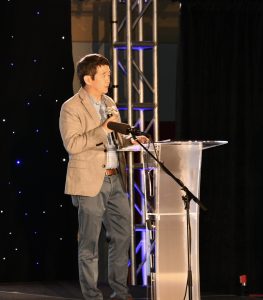
Currently, South Coast Chinese Culture Center has about seven hundred member families in the greater South Orange County area and the programs rely on over 20,000 volunteer hours every year.
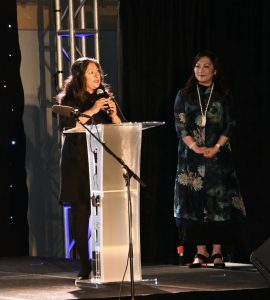
The Chinese School has over 1,000 students from K to through 12th grade. The Chinese School is open on Saturdays and Sundays and after school hours, but other cultural programs are open during week days not only for children but also for adults, Chinese or non Chinese who wish to learn the Chinese culture and language.

